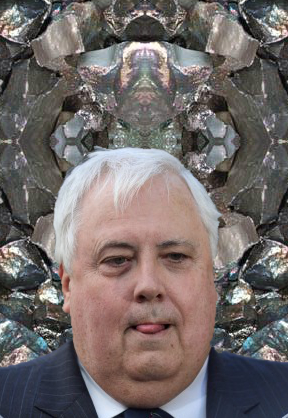Palmer's plays lead to delays
 Federal MP and embattled mining boss Clive Palmer has blamed regulatory processes for a big delay in restarting his nickel refinery.
Federal MP and embattled mining boss Clive Palmer has blamed regulatory processes for a big delay in restarting his nickel refinery.
Palmer says the restart of the Yabulu Nickel refinery will not occur until July.
It comes after former managing company Queensland Nickel sacked the refinery’s 787 workers this year.
Management has now been transferred to Queensland Nickel Sales (QNS), a company that has been registered since 1999, owned by Clive Palmer.
But the move brought no good news for the future of the refinery and its 787 staff.
The refinery was handed over to administrators when original owner QNI said it dod not have the money to keep it running.
Now that he has taken it back, Palmer says the administrators FTI Consulting had cancelled shipments of nickel to the refinery, and it will take weeks to get the supply chain running again.
But by transferring management of the refinery, Palmer and Queensland Nickel Sales for the Queensland Government to transfer environmental approvals to continue operations.
A statement from QNS said the company and administrators agreed to transfer management of the refinery on March 7, after FTI Consulting said they would have to shut the plant down, which was when Mensink said the environmental approvals would need to be transferred.
“QNS made relevant applications to the Queensland Government to transfer the necessary approvals to operate the refinery once the administrators had terminated the workforce, which was scheduled by the administrators to occur on March 11 2016,” said a statement from Clive Mensink – Clive Palmer’s nephew and the sole director of Queensland Nickel Sales - said.
“As the approvals had been planned to be transferred, in essence, to the same refinery and port operations personnel, it was anticipated that these transfers would not take more than a few days to receive government approval.”
The Queensland Government announced on Friday afternoon that it had transferred “most” of the necessary approvals, including key environmental accreditations, but Mr Mensink said they left out at least one vital OHS approval that meant work could not begin.
“By Friday March 11 2016, the Queensland Government had not transferred all approvals required,” he said.
Mensink said the administrators had also failed to hand over $10 million from Queensland Nickel to Queensland Nickel Sales, which would have been used to purchase nickel ore.
“The administrators had not transferred the cash balance of approximately $10 million to the account of QNS as it was required to do. Because of the cancellation of nickel ore orders by the administrators, there is no nickel ore projected to be delivered to the refinery,” Mensink said.
“The result is that QNS is not in a legal position to operate the refinery or because of the above reasons, does not currently know when it will be in such a position.”
The workers themselves now appear willing to seize control of the situation and save their jobs.
Three hundred former Queensland Nickel employees have met with Townsville business group Sister City Partners to tlak over plans that could see staff purchase the refinery in a joint venture, but Mr Palmer is sceptical about their finances.
“It’s really a question of whether they will be able to get that support to run the operation successfully,” Palmer said.
Palmer said the plant needs to turn over $600 to $700 million each year to keep running.








 Print
Print